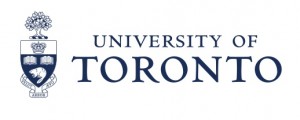 On Tuesday, July 28, 2015, the federal government announced a $114-million grant to cement the University of Toronto‘s position as one of the world’s leading centres for the design and manufacture of cells, tissues and organs to treat degenerative disease.
On Tuesday, July 28, 2015, the federal government announced a $114-million grant to cement the University of Toronto‘s position as one of the world’s leading centres for the design and manufacture of cells, tissues and organs to treat degenerative disease.
This announcement was covered in The Globe & Mail and Lab Products News, and by CBC.ca, CTV News and Global TV. MaRS Innovation was specifically mentioned as a commercialization partner in the Toronto Star‘s coverage.
As the university’s commercialization agent, MaRS Innovation welcomes this news and the downstream companies and technology licenses it will create. The Honourable Ed Holder, Minister of State (Science and Technology), made the announcement.
The funding will allow U of T, in partnership with its research partners and fellow MI members — The Hospital for Sick Children, the University Health Network and Mount Sinai Hospital — to conduct transformational research and clinical translation in regenerative medicine, enhance capability in synthetic biology and computational biology and foster translation, commercialization and clinical impacts.
Here’s an excerpt from the Globe‘s article by Ivan Semeniuk:
In the coming revolution in regenerative medicine, Toronto has won a chance to become one of the world’s preeminent body shops, a place where made-to-order cells, tissues and organs are developed and manufactured to improve health and extend life.
Or so hope scientists behind a new University of Toronto-led research program dubbed Medicine by Design that has been awarded $114-million over seven years by the federal government – the largest single research grant in the university’s history. The money will be used primarily to fund scientists and projects that will enhance a key segment of Canada’s largest concentration of biomedical researchers.
[…]Michael May, president of the Centre for Commercialization of Regenerative Medicine [CCRM], a not-for-profit organization that supports the translation of stem-cell-related discoveries into marketable products for patients, said the new program would have both clinical and economic impact.“Canada can be the place where we do advanced manufacturing in cells,” he said. “The challenge is, how do you manufacture cells at commercial scales. This is where this convergence of engineering and biology is important.”
MaRS Innovation looks forward to further collaborations with both CCRM and U of T in commercializing the technology created or developed with this funding.

